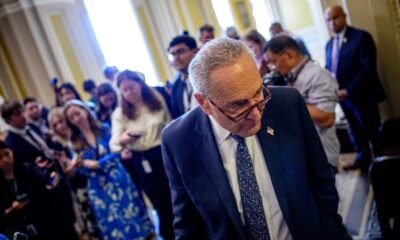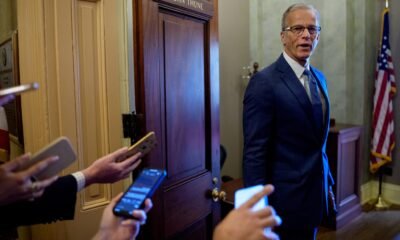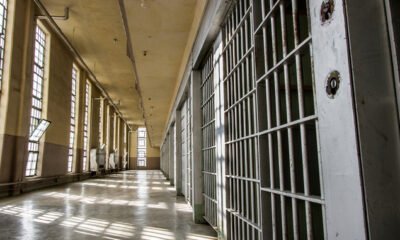Business
House Approves D-Backs Funding Bill 35-25, Next Stop: Senate

A legislative effort to secure the future of the Arizona Diamondbacks in Phoenix gained momentum as the Arizona House of Representatives approved HB2704 on February 26. With the team’s stadium lease set to expire in 2027, this vote is a critical step towards ensuring a stable home for the franchise.
The House supported the proposal with a 35-25 vote, aimed at addressing the critical maintenance needs for Chase Field, the team’s home since 1998. Diamondbacks officials are focusing on a funding framework that would facilitate essential repairs without imposing new taxes.
Rep. Jeff Weninger, the bill’s sponsor, emphasized the importance of keeping the Diamondbacks in Arizona. “This economic pillar represents pride for our state, and we must ensure its longevity,” he stated, highlighting the significance of the team to the community.
Efforts are underway to establish a financial model that juxtaposes the funding approach of the Arizona Cardinals for State Farm Stadium. The model would combine income tax revenue from players and staff with sales tax generated from stadium operations.
Weninger described this approach as effective for maintaining sports facilities and fostering collaboration among the city, county, and state. However, the Joint Legislative Budget Committee estimates that the bill could diminish state revenue by over $9.2 million annually, with Phoenix and Maricopa County facing losses of $3.5 million and $1.1 million, respectively.
The Diamondbacks project over $500 million in necessary repairs, including critical infrastructure like HVAC systems and roofs. They have indicated a willingness to finance more than half of these repairs, with a contribution expected between $250 million and $300 million.
Chase Field is owned by Maricopa County, which stipulates in a 2018 agreement that the Diamondbacks manage the facility but bear the operational and maintenance costs. “Owning a team entails significant responsibilities, much like homeownership,” remarked Rep. Justin Wilmeth, underscoring the obligation to manage repairs.
Critics of the bill, including Phoenix Mayor Kate Gallego, voiced concerns that it undermines public funding for vital services like police and firefighters. She projected a loss of $200 million for the city over three decades due to this proposal, suggesting that taxpayer money is better spent on essential public services rather than subsidies to corporations.
The House recently amended the bill to introduce transparency measures. These require the Diamondbacks’ board to report to state leaders on all maintenance projects at Chase Field. Furthermore, the tax revenue model would sunset after 30 years, leaving future legislators to determine the team’s location.
Gov. Katie Hobbs expressed her support for the bill, indicating that she would not veto it despite opposition from the city. “I hope that any disagreements between the local entities can be resolved to facilitate a deal,” she stated.
Political analysts suggest that Hobbs should sign the bill in whatever form it arrives at her desk. Republican consultant Barrett Marson remarked, “She wouldn’t want to be known as the governor who lost the Diamondbacks.”
The bipartisan support for HB2704 saw some dissent from both parties, with a faction of Democrats and Freedom Caucus members opposing it. Rep. Alexander Kolodin criticized the deal, recalling a time when Democrats opposed tax breaks for wealthy corporations.
The bill now moves to the Senate for further consideration before arriving at Governor Hobbs’ desk for final approval.


















